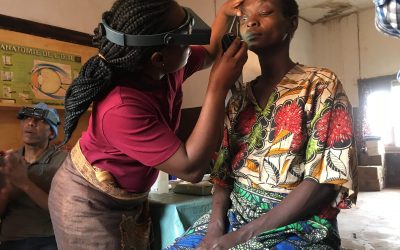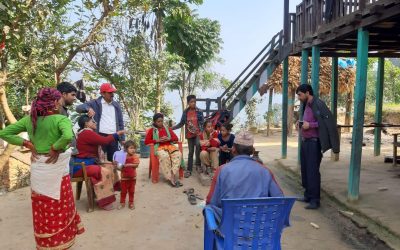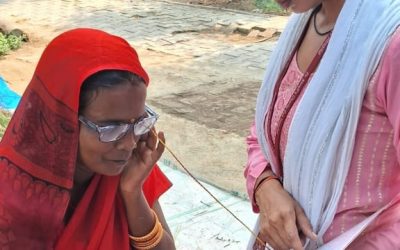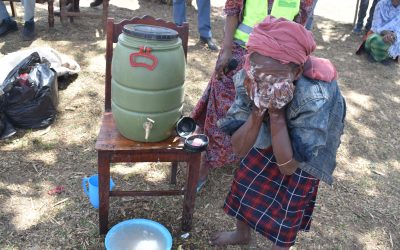Iceh News
The Role of Medicine Vendors in Eye and Ear Care in Nigeria
Photograph: Beendy234, CC0, via Wikimedia Commons In many low- and middle-income countries, access to formal eye and ear health services is limited, particularly in rural areas where specialist services are scarce. A new mixed-methods study led by International Centre...
Global Population At Risk of Trachoma Falls by more than 1.4bn in 23 years
Photograph: Nick Burns The number of people requiring interventions against trachoma, the world’s leading infectious cause of blindness, has fallen below 100 million for the first time since global records began. There were 1.5 billion people estimated to be at risk...
Low-cost Ophthalmic Device Shows Promise for Resource-Limited Areas
In global eye health, simple, affordable diagnostic tools could significantly widen access to essential examinations – particularly in low- and middle-income countries where specialist equipment is scarce. Recent research provides strong new evidence that the...
One million participants included in RAAB surveys
A RAAB in progress. Photograph: Aravind Eye Hospitals The Rapid Assessment of Avoidable Blindness (RAAB) has reached one million participants surveyed since 2000. RAAB is the main tool used for estimates of sight loss worldwide....
Digital App Performs As Well as Conventional Charts for Near Vision
Near vision testing in India Photograph: Mohd Javed A new study from India shows that a smartphone-based near vision test can be used reliably by trained community screeners, offering a rapid and accurate alternative to conventional near-vision charts. Conducted in...
Translating Research into Intervention: Developing a Face Washing Programme to Help Eliminate Trachoma
Face washing as part of the Stronger-SAFE events. © Zacharias Abubeker Trachoma is the world’s leading infectious cause of blindness, affecting over 100 million people globally. Repeated infections with the bacterium Chlamydia trachomatis cause scarring that turns the...
Africa Public Eye Health & Clinical Fellows Announced
This year's cohort of African Public Eye Health & Clinical Fellows have been announced. The programme, a joint initiative between the International Centre for Eye Health at the London School of Hygiene & Tropical Medicine and the Fred Hollows Foundation, aims...
ICEH welcomes new Academic Clinical Fellow
Each year, the National Institute for Health and Care Research (NIHR) facilities a programme of Academic Clinical Fellowships (ACF), a clinical specialty training post in medicine that incorporates academic training. Fellows spend 25% of their time in research...
ICEH PhD Students: The Next Generation of Research
At the International Centre for Eye Health we have a proud history of developing research careers globally. Since 2010 we have had 28 research degree students who have been awarded their PhDs, and 16 of these are nationals of low and middle-income countries (LMICs)....









